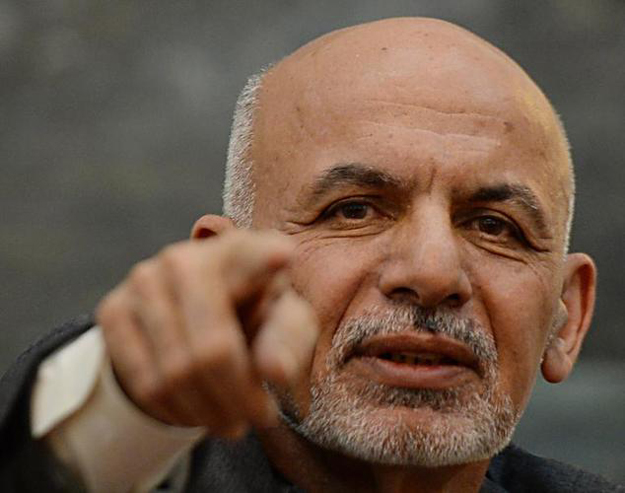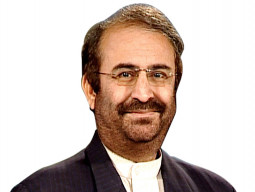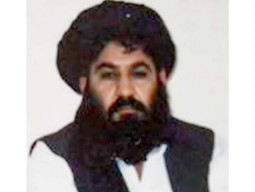
ISLAMABAD: A series of anti-Pakistan statements by senior Afghan leaders are proving to be catastrophic for Islamabad’s efforts to maintain good neighbourly relationship with Afghanistan.
The saddest aspect of the blame game is its negative impact on people-to-people relations between the two countries.
As Afghan President Ashraf Ghani and Chief Executive Dr Abdullah Abdullah launched scorching criticism at Pakistan, Afghan political commentators, media, clerics and traders followed their leaders to rally against Pakistan at a time when cooperation between the two countries is key for peace and stability of the region.
The two Afghan leaders pointed fingers at Pakistan following deadly attacks in Kabul and other cities earlier this month, but failed to share evidence to substantiate their claims.
As Kabul seems to be in no mood to normalise relations, the office of the chief executive has warned Pakistan that if it fails to dismantle terrorist sanctuaries, Kabul – with the help of the international community – will be forced to directly hit militant hideouts across the Durand Line.
“We often told Pakistan to demonstrate sincerity in fighting terrorism otherwise Afghan security forces are capable of eliminating militant sanctuaries inside and outside the country,” Sayed Aqa Hussain Fazel Sancharaki, an adviser to Dr Abdullah, told the Pajhwok news agency on Friday.
Former Uzbek warlord General Abdul Rashid Dostam, now one of Ghani’s vice-presidents, said Pakistani officials are “leading the Taliban fighters in northern Afghanistan.” Even though he is a government figure, Dostam heads an Uzbek militia that is blamed for the massacre of many Taliban prisoners in late 2001.
Recently, Afghan acting national defence minister Masoom Stanekzai was quoted as saying, “Pakistan’s undeclared war had turned into a declared war in Afghanistan.”
Instigated by the leaders’ remarks, some angry demonstrators have been burning Pakistani flags on the roads of Kabul.
Moreover, government-backed religious scholars issued an edict asking Afghan youth to wage jihad against Pakistan days after Ghani claimed his country is receiving “messages of war” from Pakistan.
The president later “praised the ulema for having presented a clear analysis of the situation as well as the way out in their recent declaration,” a Presidential Palace statement said on August 14.
As there is no let up in Kabul’s accusations, some Afghan traders announced a ban on import of Pakistani medicines, citing the Ghani government’s accusations.
“In the backdrop of recent terrorist attacks, traders have decided to stop import of medicines from Pakistan,” said Abdul Khaliq Zazai Watandost, head of the Afghanistan Pharmacists Services Union, the Pajhwok news agency has reported.
Khan Jan Alkozai, deputy director of Afghanistan Chamber of Commerce and Industry, backed the decision, according to the report.
The tense atmosphere also led to recent clashes along the volatile border that caused casualties on both sides. In a retaliatory action, both countries summoned their ambassadors this week. Pakistan conveyed its “concerns over recent spate of Afghan government’s allegations and media campaign to malign Pakistan,” the Pakistani Foreign Ministry said this week.
Pakistani officials insist Afghan leaders have “acted against an understanding” to use diplomatic channels to share concerns rather than using the media for public accusations. Both have bilateral and even trilateral forums with friendly countries like China, Turkey, the US and UK and it would be wise to channelise them.
It would also be unfortunate if people in both countries suffer due to government policies but it seems that is how things will play out in the near future.
Pakistan announced last week it has postponed its scholarship programme for Afghanistan, citing security concerns.
Spokesperson for the Pakistani Embassy in Kabul, Akhtar Munir, told The Express Tribune Pakistan cannot provide security to nearly 6,000 Afghan students who had applied for the Pakistani scholarships this year.
Pakistani leaders should hear Kabul’s concerns if it wants to pursue its policy of good neighbourly relations as Pakistan will not see peace and stability if violence continues to haunt Afghans.
Published in The Express Tribune, August 22nd, 2015.




































































COMMENTS (2)
Comments are moderated and generally will be posted if they are on-topic and not abusive.
For more information, please see our Comments FAQ